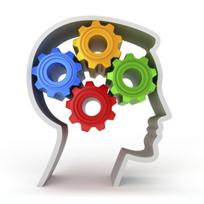
КАТЕГОРИИ:
Архитектура-(3434)Астрономия-(809)Биология-(7483)Биотехнологии-(1457)Военное дело-(14632)Высокие технологии-(1363)География-(913)Геология-(1438)Государство-(451)Демография-(1065)Дом-(47672)Журналистика и СМИ-(912)Изобретательство-(14524)Иностранные языки-(4268)Информатика-(17799)Искусство-(1338)История-(13644)Компьютеры-(11121)Косметика-(55)Кулинария-(373)Культура-(8427)Лингвистика-(374)Литература-(1642)Маркетинг-(23702)Математика-(16968)Машиностроение-(1700)Медицина-(12668)Менеджмент-(24684)Механика-(15423)Науковедение-(506)Образование-(11852)Охрана труда-(3308)Педагогика-(5571)Полиграфия-(1312)Политика-(7869)Право-(5454)Приборостроение-(1369)Программирование-(2801)Производство-(97182)Промышленность-(8706)Психология-(18388)Религия-(3217)Связь-(10668)Сельское хозяйство-(299)Социология-(6455)Спорт-(42831)Строительство-(4793)Торговля-(5050)Транспорт-(2929)Туризм-(1568)Физика-(3942)Философия-(17015)Финансы-(26596)Химия-(22929)Экология-(12095)Экономика-(9961)Электроника-(8441)Электротехника-(4623)Энергетика-(12629)Юриспруденция-(1492)Ядерная техника-(1748)
Intelligence
Text 2
Text 1
TEXTS FOR INDIVIDUAL READING

WHAT IS EDUCATION?
What is education; knowledge in basic skills, academics, technical, discipline, citizenship or is it something else? Our formal education system says only academic basics are important and that is based on collecting knowledge without understanding its value. How about the processing of knowledge, using inspiration, visionary ambitions, creativity, risk, ability to bounce back from failure, motivation? Many education institutions do not consider these skills. These skills are associated with understanding the value of knowledge. There is a huge disconnected gap and this is a problem for high school students in particular.
Thomas Edison, Henry Ford and many other super achievers never finished grade school. They succeeded because they knew how to research, collect information for a selected project and process knowledge. Classroom environment does not work that way, it focuses on the collection of knowledge without a clear purpose, other than high-class grades. If the purpose does not motivate, other than to please the teacher, then there is nothing to process outside of memorizing answers for test. The typical student is academic challenged while being motivation starved. Lack of motivation is lack of knowledge processing skills. The typical college graduate will have a professional skill that supplies life’s basic needs, that’s all.
What is education? The answer is, all elements in the opening paragraph and more, relate to education and all should be considered. This would be ideal and sounds good, but “all” is not possible where performance must be measured. Only what can be measured will be selected and the measuring tool is the written test. Anyone who does not have the ability to put clear thoughts on paper is labeled a failure. All natural skills, including knowledge processing, does not count. The fact is, what is exercised grows stronger, what is ignored stays dormant. The classroom exercises the collection of academics leaving all other natural skills in the closet.
Test does not measure intelligence or ability, it does not measure how the mind processes information, how motivating experiences develop persistence, or how the mind sorts out instincts, opinions, evaluations, possibilities, alternatives. Knowledge by itself has no value, it is like a dictionary filled with words. Words by themselves have no value, it is the process of stringing them together that gives them value. How they are strung together determines the level of value. Now our education system is becoming a system that memorizes the dictionary. When students have memorized selected knowledge, then they will be given a one-day test, based on dictionary knowledge, which will influence employment opportunity for the rest of their life. Natural skills are not considered. Is this how America became the worlds' economic leader? NO! Knowledge only has value when used with a process and process in an artificial environment is not predictable or measurable.
Achievers in life use inspiration and motivation to overcome barriers. Teaching to the test does not inspire or motivate anyone, memorizing does not inspire a love to learn, in fact, it does just the opposite, it turns off the desire to learn. Education’s goal should be to develop a love to learn that stays with students throughout a lifetime. Education should be a lifetime experience, not limited to the youth years.
Educators are switching to test because there is a crisis in education of their own making and society wants measurable results. This pressure is passed on to political leaders who base political decisions on what is measurable, which is academic test and test are based on acceptance of the status quo. Every student must now accept the status quo and be an academic intellectual or be labeled a failure. Natural talent and knowledge processing skills does not count. Students receiving the failure label are growing in numbers and percent, all because the system measures selected knowledge on a one day standardized paper test.
Consider the parent who is having a problem with a word processor. On their own they can’t solve the problem. They have been collecting knowledge for years, but their knowledge processor is in hibernation. With any new gadget someone has to teach them, they can’t figure it out for themselves. Their thirteen-year-old boy comes to the rescue. He has limited knowledge, but he knows how to processes available information. He explores the word processor problem until he finds a solution. He is not unusually smart, this is a teenager’s natural approach to finding solutions.
All young children have a natural talent for creative process of information. It’s during the teen years that natural creative processing is replaced with the status quo. The status quo memorizes knowledge and forgets how to process it. In the classroom, memorizing is what counts. Standardized test reinforces the status quo. It kills creative processing ability. Status quo attitudes will follow them into adult life where they will have to ask their children for help (http://www.motivation-tools.com/youth/what_is_education.htm).
√ Answer the questions
1. What is education? 2. Is it possible to be successful if you never went to school? 3. What does the typical college graduate usually acquire? 4. How can performance be measured? 5. Are there any skills that can not be measured? 6. Why must parents sometimes ask their children for help? 7. Do teenagers have a natural approach to finding solutions? 8. Is education important for a person’s development?

Intelligence is an abstract concept that is difficult to define. Although many psychologists equate intelligence with verbal ability and problem-solving skills, others prefer to define it as the individual’s ability to learn from and adapt to the experiences of everyday life. If we were to settle on a definition of intelligence based on these criteria, it would be that intelligence is verbal ability, problem-solving skills, and the ability to learn from and adapt to the experiences of everyday life.
The difference between how we discuss information processing skills and language and how we discuss intelligence lies in the concepts of individual differences and assessment. Individual differences are simply the consistent, stable ways we differ from each other. The history of the study of intelligence has focused extensively on individual differences and their assessment. For example, an intelligence test will inform us whether a child can reason more logically than most other children who have taken the test.
Is it more appropriate to think ofintelligence as an individual’s general ability or as a number of specific abilities? Intelligence is probably both.
In 1904, the French Ministry of Education asked psychologist Alfred Binet to devise a method that would determine which students did not profit from typical school instruction. School officials wanted to reduce overcrowding by placing those who did not benefit from regular classroom teaching to special schools. To meet this request Binet and his students developed an intelligence test. The test consisted of thirty different items ranging from the ability to touch one’s nose or ear when asked to the ability to draw designs from memory and define abstract concepts.
Binet developed the concept of mental age (MA) – an individual’s level of mental development relative to others. He reasoned that mentally retarded children would perform like normal children of a younger age. He developed norms for intelligence by testing fifty nonretarded children from 3 to 11 years old. Children suspected of mental retardation were tested and their performance was compared with children of the same chronological age in the normal sample. Average mental-age scores (MA) correspond to chronological age (CA), which is the age since birth. A bright child has MA above CA; a dull child has MA below CA.
The intelligence quotient (IQ) was devised by William Stern. IQ is the child’s mental age divided by chronological age multiplied by 100:
IQ = (MA/CA)*100
If mental age is the same as chronological age then the child’s IQ is 100; if mental age is above chronological age the IQ is less than 100.
Despite limitations, when used by a judicious examiner, intelligence tests can be valuable tools for determining individual differences in intelligence. The test should be used with other information about the individual. But intelligence or high IQ is not necessarily the ultimate human value (John W. Santrock. Children).
√ In the text find the translation of the words below.
Абстрактне поняття, яке складно визначити; ототожнювати із вмінням вирішувати проблеми; пристосовуватися до повсякденного життя; визначення, яке базується на цих критеріях; міркувати логічніше ніж інші діти; більш доречно вважати; особливі здібності; винаходити метод; зменшувати чисельність учнів у школах; задовольнити вимогу; тест, який визначає розумові здібності; рівень розумового розвитку; ментальний та хронологічний вік; різниця між особистостями.

|
|
Дата добавления: 2014-11-29; Просмотров: 1084; Нарушение авторских прав?; Мы поможем в написании вашей работы!